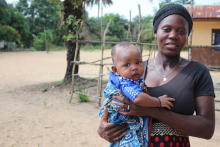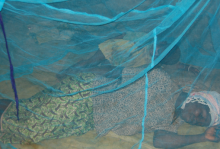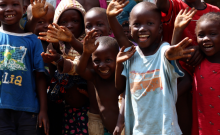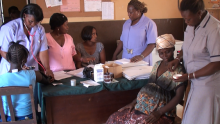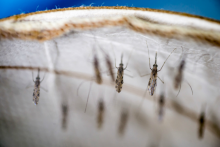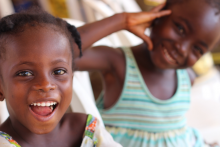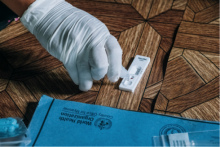Tackling malaria in Sierra Leone
Sierra Leone has one of the highest burdens of malaria in the world. The country's entire population is at risk of the disease and it is one of Sierra Leone’s leading causes of death and illness. Our photo essay explores progress in reducing malaria cases and impacts in the West African country.
Sierra Leone has one of the highest burdens of malaria.Malaria is endemic in Sierra Leone. The country's entire population is at risk of the disease and it is one of Sierra Leone’s leading causes of death and illness. Malaria is the reason behind nearly four in ten hospital consultations countrywide.
Children under five are at high risk of malaria.
Young children are particularly susceptible to infection, illness and death from malaria. In Sierra Leone, the disease contributes to close to an estimated twenty percent of child mortality.
Malaria mortality rates are falling.
Sierra Leone has achieved vast declines in malaria deaths between 2010 and 2015, the highest in Western Africa. This is linked to a range of interventions, including increased availability of diagnostic tests, free treatments and mass distribution of insecticide treated nets (ITNs).
Early diagnosis and prompt treatment of malaria saves lives.Early diagnosis and treatment of malaria reduces transmission of the disease and prevents deaths. It is critical that people seek diagnosis and care as soon as they experience any symptoms of malaria. Early symptoms can include fever, chills, body aches and headache.
Sleeping under a treated bed net protects against malaria.People who sleep under insecticide treated nets have signficantly lower risks of malaria infection. In Sierra Leone, mass campaigns distributed bed nets to the majority of households in 2014 and engaged communities on prevention and response. New campaigns are due to commence in 2017.
Malaria increases risks of death and complications during pregnancy and childbirth.Pregnant women are at high risk of dying from the complications of severe malaria. Malaria is also a cause of spontaneous abortion, premature delivery, stillbirth and severe maternal anaemia, and is responsible for about one third of preventable low birth weight babies. Pregnant women should sleep under the net every night to protect against mosquito bites and go the clinic for checkups and preventive medicine.
Sierra Leone has committed to reducing new malaria infections by 40 percent by 2020.Towards the ultimate goal of malaria eradication, the Ministry of Health and Sanitation in Sierra Leone has committed to reducing new cases of the disease by 40 percent by 2020. This will require concerted actions from government, partners, health staff and communities to ensure uptake of preventive measures and timely treatment for all.




